Born in Boston of Italian heritage — his paternal grandfather was Costantino Nivola, the eminent Italian sculptor, muralist and teacher — Alessandro Nivola is a man in possession of the healthy balance of a renowned artistic talent mixed with deep family values, and is the consummate professional.
Alessandro is married to noted British actor, writer and producer Emily Mortimer, whose pedigree in the arts and literary worlds is just as impressive, as the daughter of the late dramatist and barrister Sir John Mortimer. Together, they have their own production company called King Bee Productions developing material for TV and film. Their two children, Sam and May, also are actors. It’s a family affair, but with no hint of nepotism or superficiality. Theirs is an educated and elegant progression through the arts, born out of passion, rather than any desire for fame as is so common in today’s entertainment dynasties.
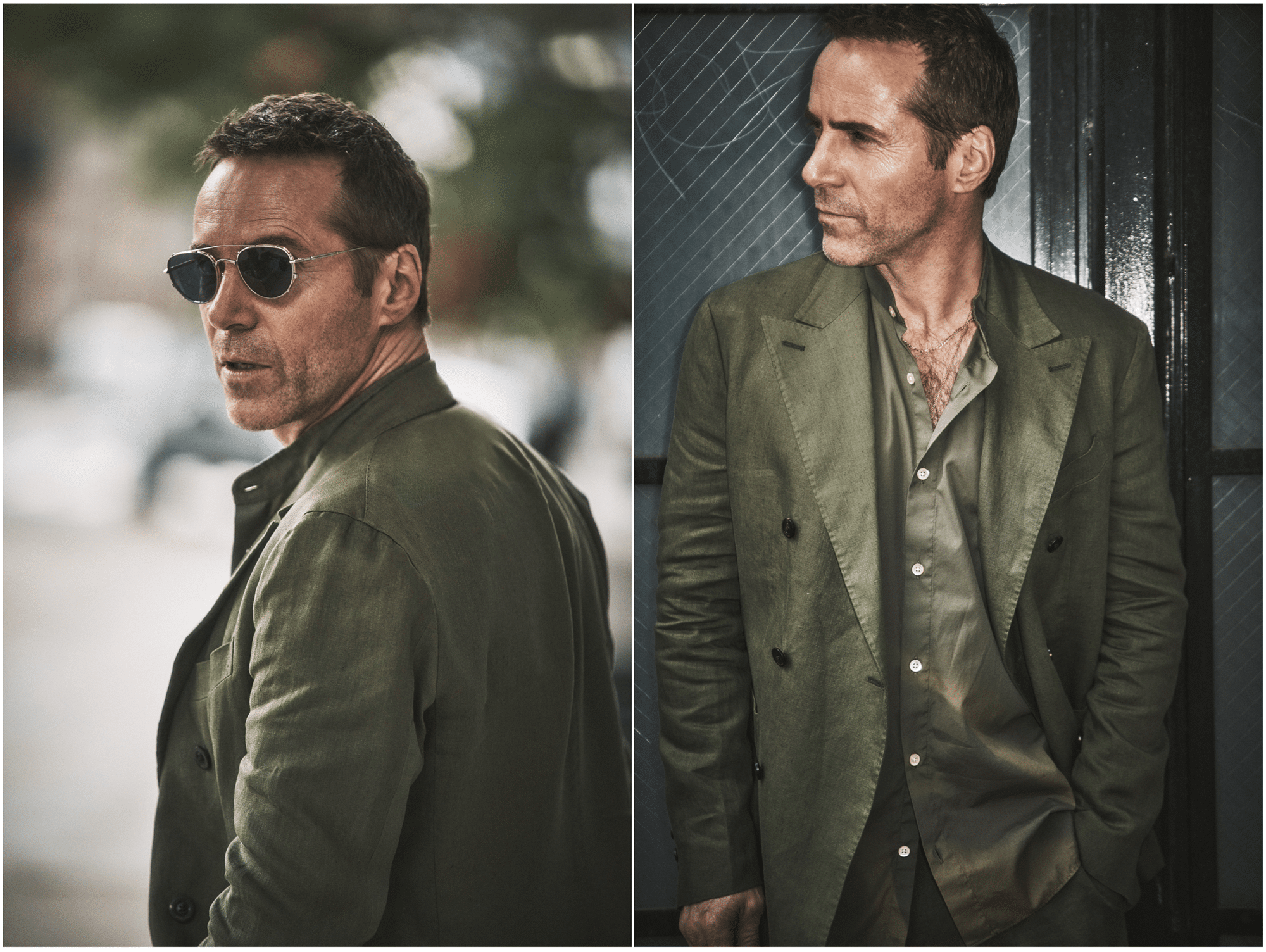
Alessandro has honed his craft working alongside many of the greats, commonly playing characters that support the leading man, which has given him the space and opportunity to learn from the best without the pressure of carrying the movie, but also made him a consistent fixture on our screens for decades, known for his nuanced and versatile performances. Alessandro possesses a depth and integrity so that whichever character he’s portraying, there’s a truth, a solidness, that can’t be faked.
Alessandro and I have a few long-time trusted friends in common. I’ve never heard a bad word about him — on the contrary, when asked, they all said the same thing: that he is very bright, interesting, inquisitive and forever a learner; that he’s crazy about his wife, family, and also tennis. Indeed, during our interview over Zoom, when he couldn’t remember a name of an author or book, he was quick to look it up, not wanting to approximate, but rather be precise, something that is always present when he takes on a character.
He made his Broadway debut playing opposite Helen Mirren in 1995’s A Month in the Country to rave reviews, and his breakthrough film performance came playing Nicholas Cage’s brother Pollux Troy in John Woo’s 1997 feature Face Off. He then took on a variety of roles in critically-acclaimed films such as Selma, Coco Before Chanel, Disobedience, and The Wizard of Lies. He also starred opposite Keira Knightley in Boston Strangler and in David O’Russell’s American Hustle and Amsterdam opposite Christian Bale and Margot Robbie. In 2021, David Chase chose Alessandro as the leading role of Dickie Moltisanti in The Many Saints of Newark, the prequel to the iconic television series The Sopranos, a part which Alessandro delivered with style and finally became a made man in cinematic terms.
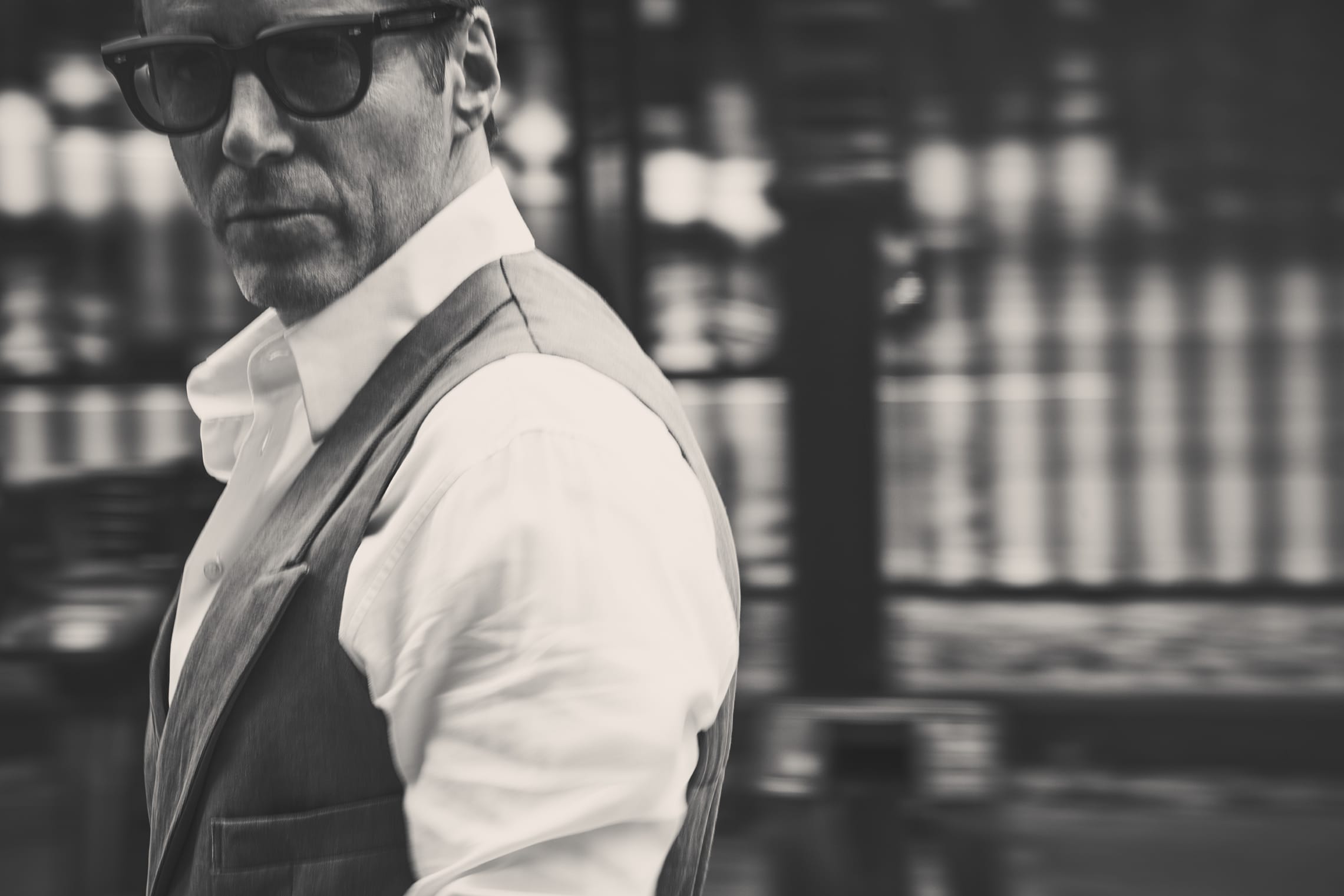
Currently, Alessandro can be seen in the popular Apple TV series, The Big Cigar, playing Bert Schneider, a renegade film producer who, hot off the success of making Easy Rider has chosen a new role for himself — figuring an escape route for his best friend, Black Panther founder Huey P Newton (Andre Holland), who he helps escape to Cuba under the pretense of making a movie whilst being pursued by the FBI. And in December he’ll be seen playing the favorite villain The Rhino in Marvel’s Kraven The Hunter alongside Aaron Taylor-Johnson, Ariana DeBose, and Russell Crowe, directed by J C Chandor, which was announced as being Sony’s first R-rated superhero film.
I spoke to Alessandro on Zoom — he at home in Brooklyn, me catching the dawn in Los Angeles. He was warm and smart, constantly referencing books, films, vintage family photographs and culture, someone with boundless curiosity towards learning — even though his schedule had been manic, working days in London on Downton Abbey, doing press for The Big Cigar, appearing at Venice film festival on a very exciting new project that will be publicly announced after this issue of Mr Feelgood is released. He said he felt quite “heart racy” which made me like him even more. He is honest, candid and funny, and it never felt like he was only presenting his best media side. He’s a dad, a husband, an actor — a bona fide leading man in his own life.
Alessandro discusses life, heritage, style, and country music with me as he becomes the latest subject of our Who The F*** Are You? profile, answering the 20 questions that get to the heart of who we are.
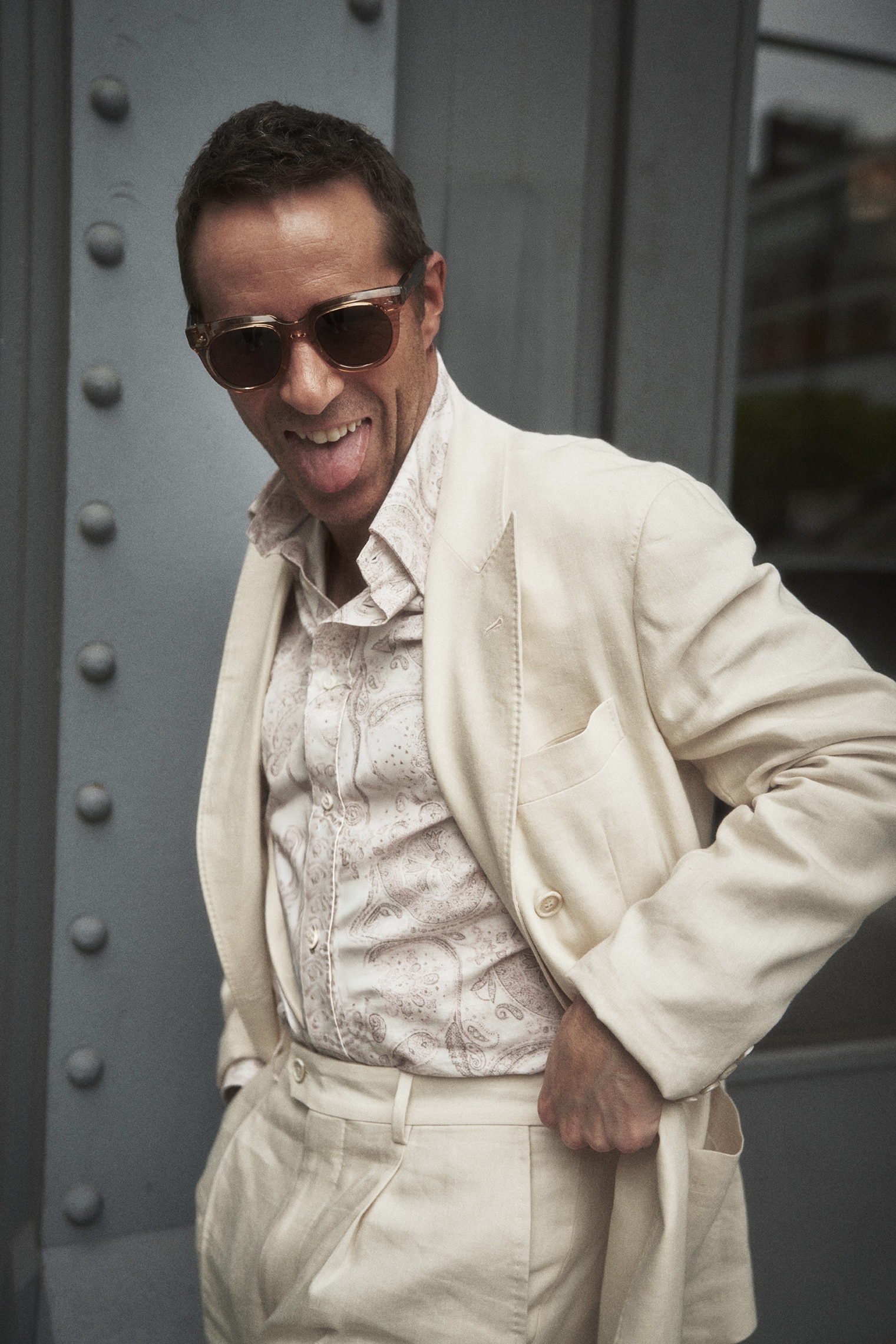
Who the f*** are you?
Meaning what’s the essence of me? I’m Alessandro Nivola and I’m a tennis fan. All true! No, I mean, I’ve gotten so obsessed with it. My girlfriend from college is now married to Patrick McEnroe. Then I got a message from someone saying that Patrick wanted to have me on his podcast, and so we met there and talked about our mutual friend. And we’ve become pals since then, so I have the backdoor key to the tennis world.
How are you feeling right now?
Slightly … sort of heart racy because I’ve just done so much traveling in the past couple of weeks. I was in Madrid filming the Almodóvar movie, two, three weeks ago. Then I was in LA for two days for the Big Cigar junket. Then I was in London filming a day on the Downton Abbey movie. Then I went to visit my wife in Italy for a weekend because she was working down there. Then I went back to Downton Abbey for a day, then I’ve been back here for one week, and now tomorrow I’m flying back to London to keep filming. And so it’s too much running around, and packing and repacking, and I have that slightly panicky feeling. Also, I’m going to be away from Emily and my daughter, May, for five weeks now, so that’s never fun.
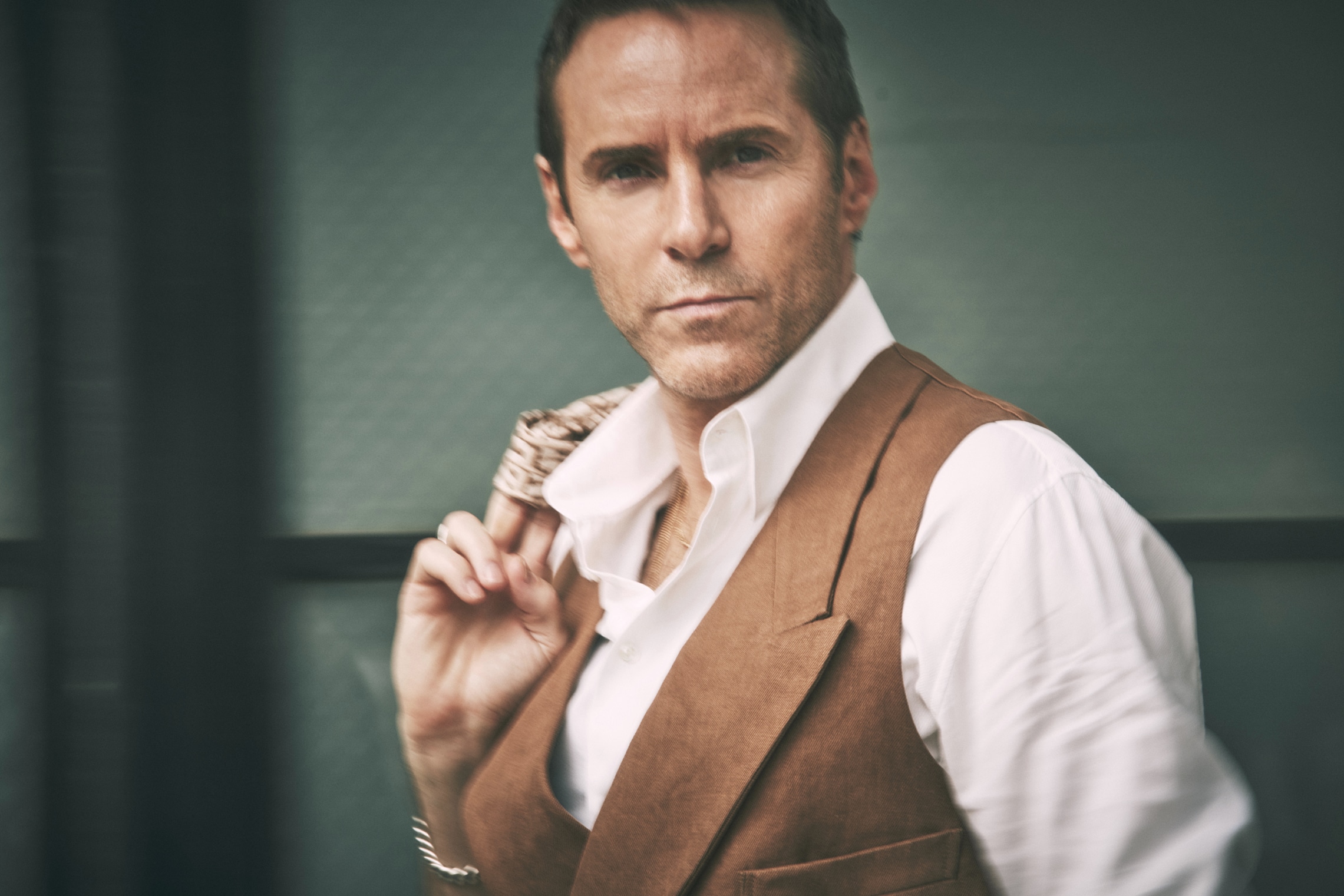
Where did you grow up and what was it like?
I had a very itinerant childhood, so I never really settled very long in any particular place, and I don’t have roots that way. But I was born in Boston, I lived there until I was about five years old. Then we lived in rural Vermont up near Burlington for a few years, then I was in Washington DC for a year, then I was in North Shore, Massachusetts, for a year, and then I went to boarding school in New Hampshire. So in fact, boarding school was the first time I was at one school for four years in a row, that hadn’t happened up until that time.
So it was a lot of up sticks and moving on, which I guess made me used to the feeling of that transience and things changing always. But also I have at times in my life felt like I was envious of people who had a whole cache of childhood friends and a feeling of belonging to a particular place. And Emily, for example, has that in spades. She grew up in London and spent her whole life there until meeting me, and all of her roots are really well planted there.
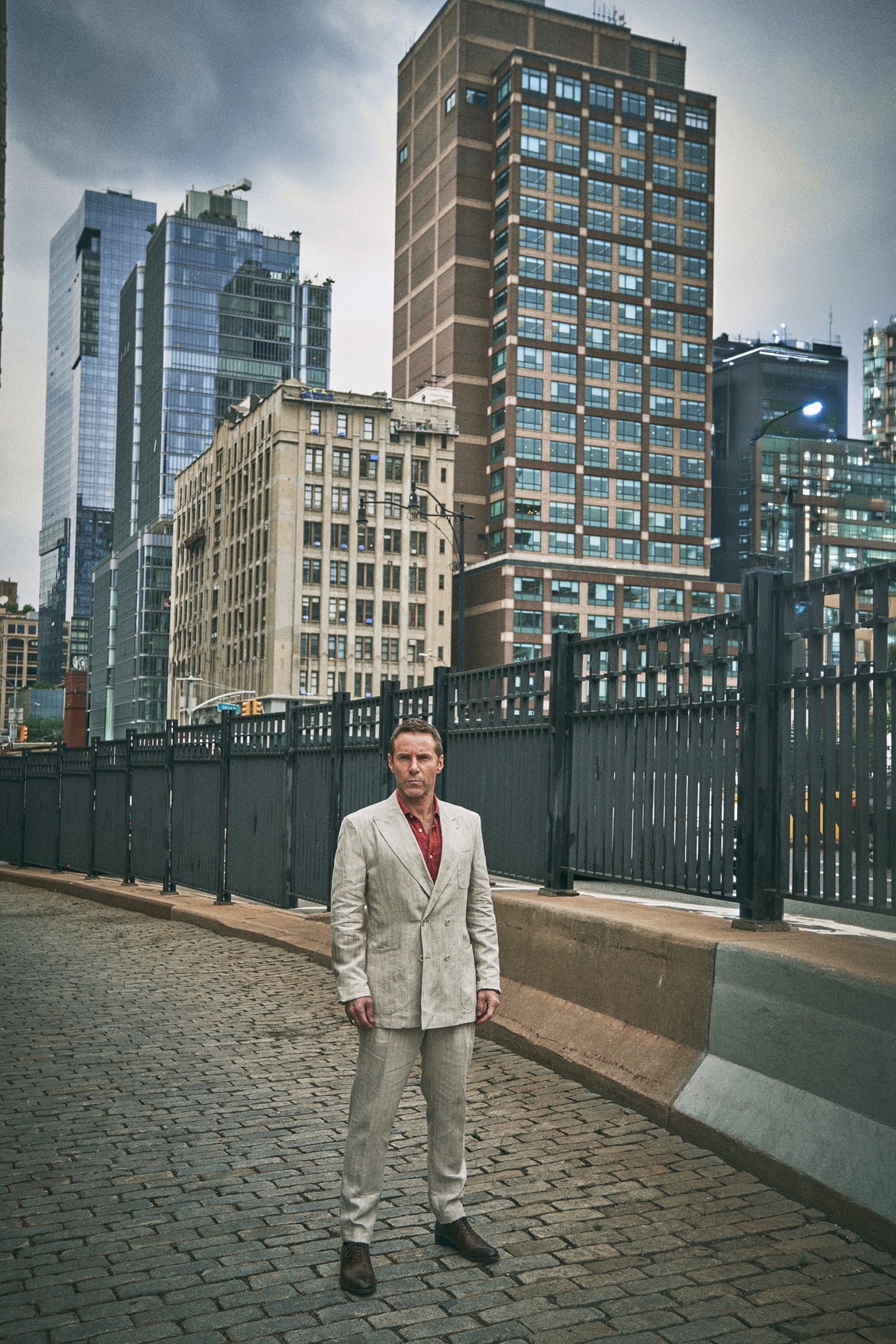
What excited you?
What excites me? I guess the challenge of a new project and the fear and anticipation of beginning to try and crack it.
What scares you?
Same thing. I mean, on the one hand, the longer I’ve been at it, the more confident I’ve grown, the more I’ve felt like I can trust my instincts about how to go about work. And I have certain things that I rely on to start the process and all that kind of thing.
And on the other hand, because of the collaborative nature of the job, it just means that no matter how much experience you have, it’s always different. I think what’s most appealing about it as the way that I’ve made a life, is that it also means that there’s some feeling of going into every new job where you’re anonymous.
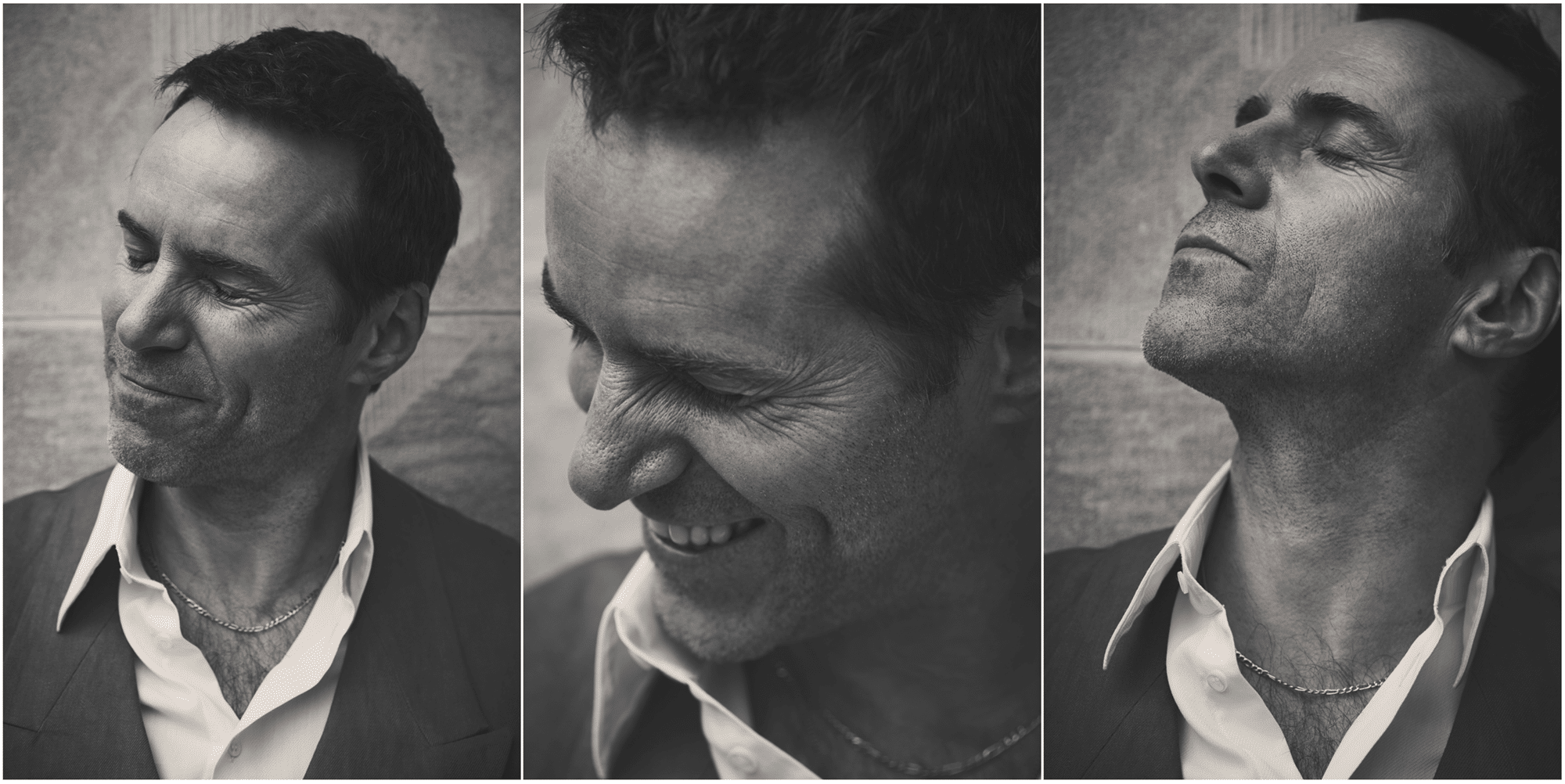
What is your proudest achievement?
Well, I would say my kids, but they’re still a work in progress. Obviously, I am crazy proud of them, but I don’t see it as something that’s in the rearview mirror, it’s an ongoing project. Or experiment! Yeah, more aptly put.
And actually, truth be told, I feel like I’ve had so little to do with their development, mainly just because, if there is one thing I’ve discovered from having children it’s that they come out who they are, and you have not a whole lot to do with it. So I guess in that sense, I really can’t cite it as an example of something that I’ve achieved at all.
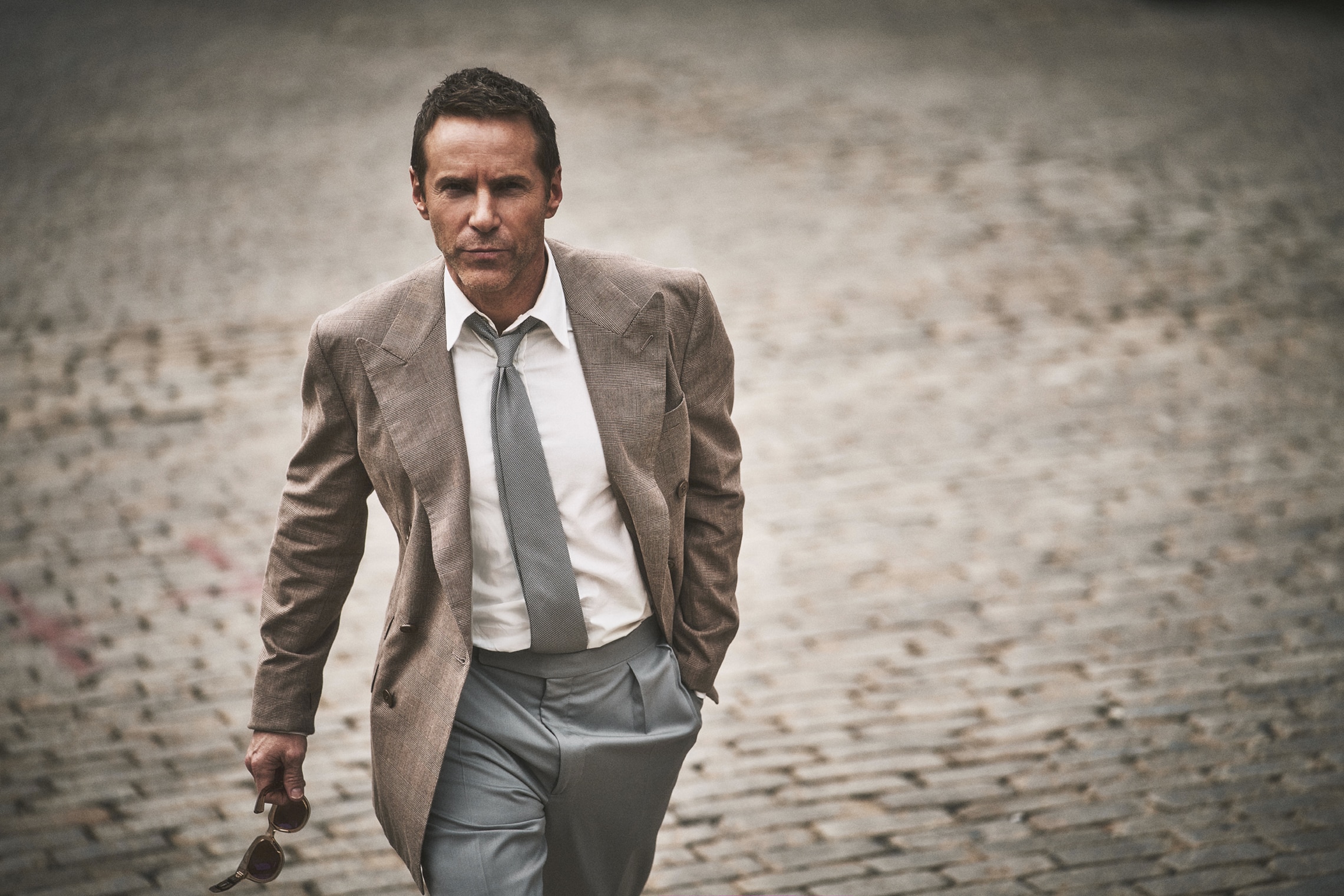
Then beyond that, I don’t know, it’s hard to think about. I don’t really think about work that I’ve done in the past as an achievement because I feel like the minute I’ve finished a job, it’s ceases to exist. A lot of the things I’ve been in I’ve never even seen. I don’t kind of have an archive in my soul for these performances, or movies that I’ve been in, or awards I’ve won, or something that I hold up as some kind of talisman. It’s like they evaporate into thin air.
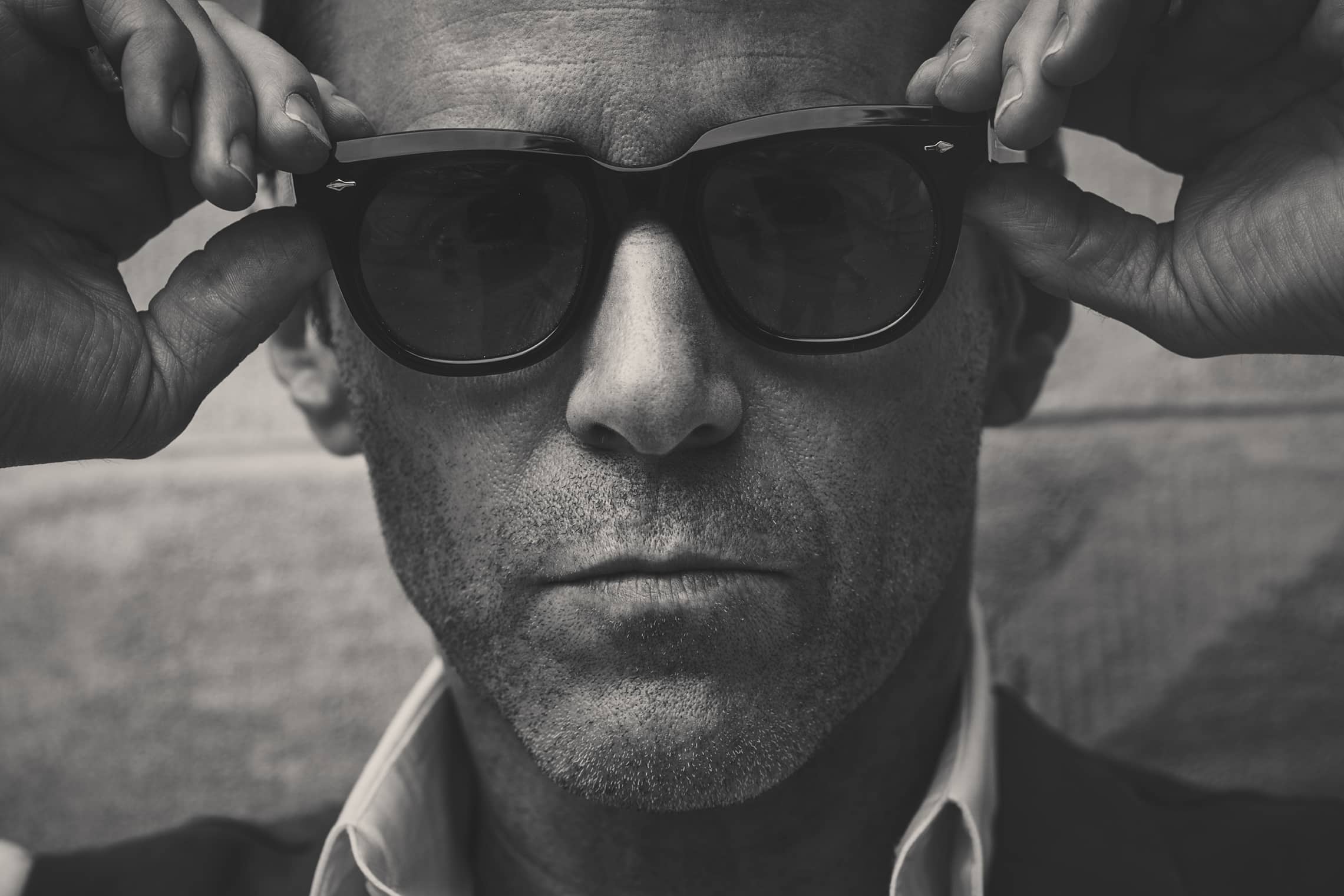
What is the hardest thing you have ever done?
Wakeboarding! That’s where you get pulled by a motorboat and you’re on the little surfboard and the motorboat creates a wake of waves, and you get off into the wake and try and stand up on it. And then you drop the line and then the boat keeps going and you’re just carried along by the boat’s wake without being pulled. It’s very hard. Very hard.
Who was your greatest mentor and what did they teach you?
I had an acting teacher in boarding school who I adored, who was my first important teacher in terms of learning about relaxation and concentration. He took a real personal interest in my development as an actor, and he directed me in a lot of plays. I took his class, and I did a lot of work with him as an actor in the four years that I was there.
But then the year after I left, he was arrested for a sex scandal (thankfully not involving me), and put in prison. The story was complicated, and I don’t even have all the nuances and the details of it, but obviously it wasn’t a good thing. It was a real heartbreaker for me because I still believe he was one of the most influential people in terms of my development as an actor. So yeah, very sad. But also I still cherish what he taught me.
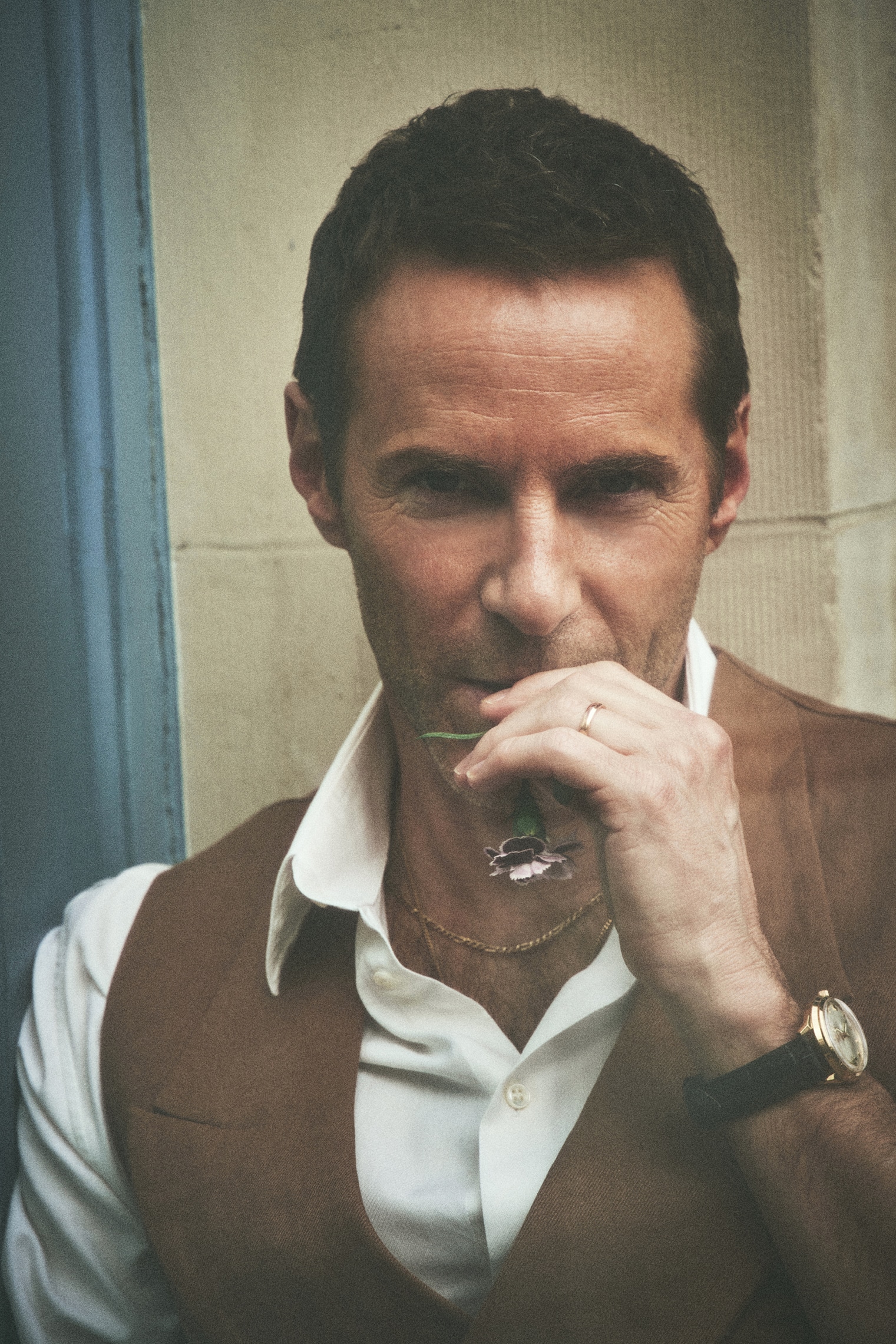
Who are your fictional and real-life heroes?
Well, there are characters in books who I just have fallen in love with. Some, I guess are heroic and others not at all. There’s this character in this book called The Moviegoer by Walker Percy. I just read it, it’s so brilliant, you’ve got to read this book if you haven’t already. It’s from the 1960s.
And the character’s name is Binx Bolling, he lives down in New Orleans. And it’s basically a book about depression, I guess, but written in the 1960s and with the most wry stealthy way in. And this character is just heartbreaking. He’s a heartbreaking guy, but just absolutely brilliant. He’s wildly intelligent, so dry and so funny, hiding all his storms inside.
It’s just a great book. And the era is so cool, the setting and the South and the ’60s. And the writer, Walker Percy himself, is a hero of mine too. He is just totally fascinating because he was, I think, a doctor for years and years and didn’t write his first book until… here, let me see, he trained as a physician at Columbia, he decided to become a writer after a bout of tuberculosis. He devoted his literary life to the exploration of the dislocation of man in the modern age. So I think he was 50 or something when he wrote his first novel. And I think this may have been his first novel, and it won the National Book Award in 1962. The Moviegoer. It was his first novel. It was his first novel!
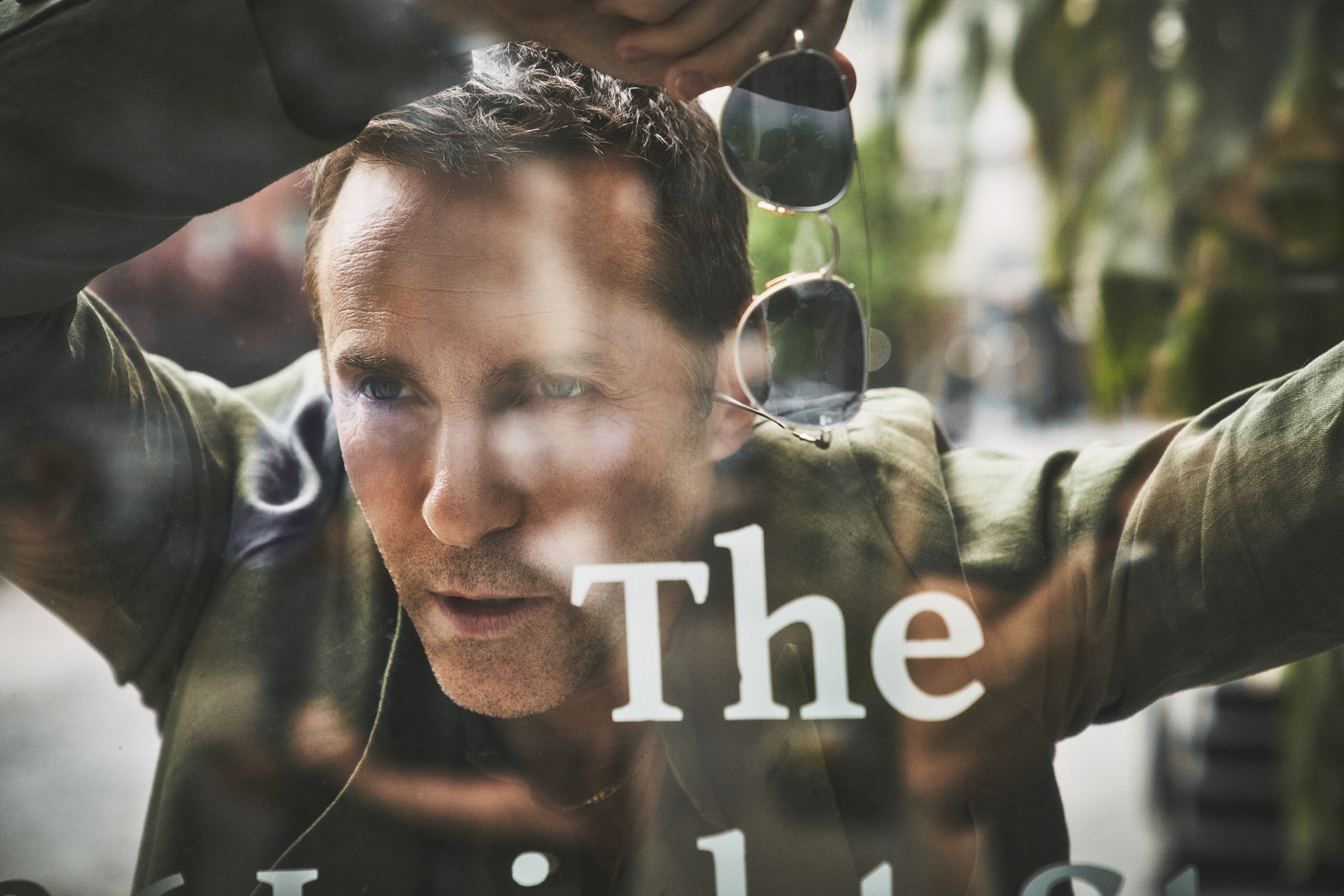
He was in his 50s. He’d been a doctor his whole life, and he’s just f***ing brilliant. I mean, the writing is lights out brilliant. And sure enough, he won the National Book Award for his first book. And I just love that he decided to do it at that late stage. He died in 1990 at 73. I think he wrote eight books or something. And I think there’s another one or two of them that are also considered phenomenal, but this was his best one by far.
I’d always heard about it. I don’t know why, but I’d always heard that it was a great book. One of those books that I’d wanted to read for years, and years, and years. I kept seeing it in bookstores, and then I was in this bookstore in London just walking through it and just trying to find something to read next. I saw the cover of it, and it was bright yellow, so it was vibrating off the stands. And I went closer to it, and it was The Moviegoer and I was like, “Oh, that’s the one, I’ve been wanting to read this thing.” And then I just loved it.
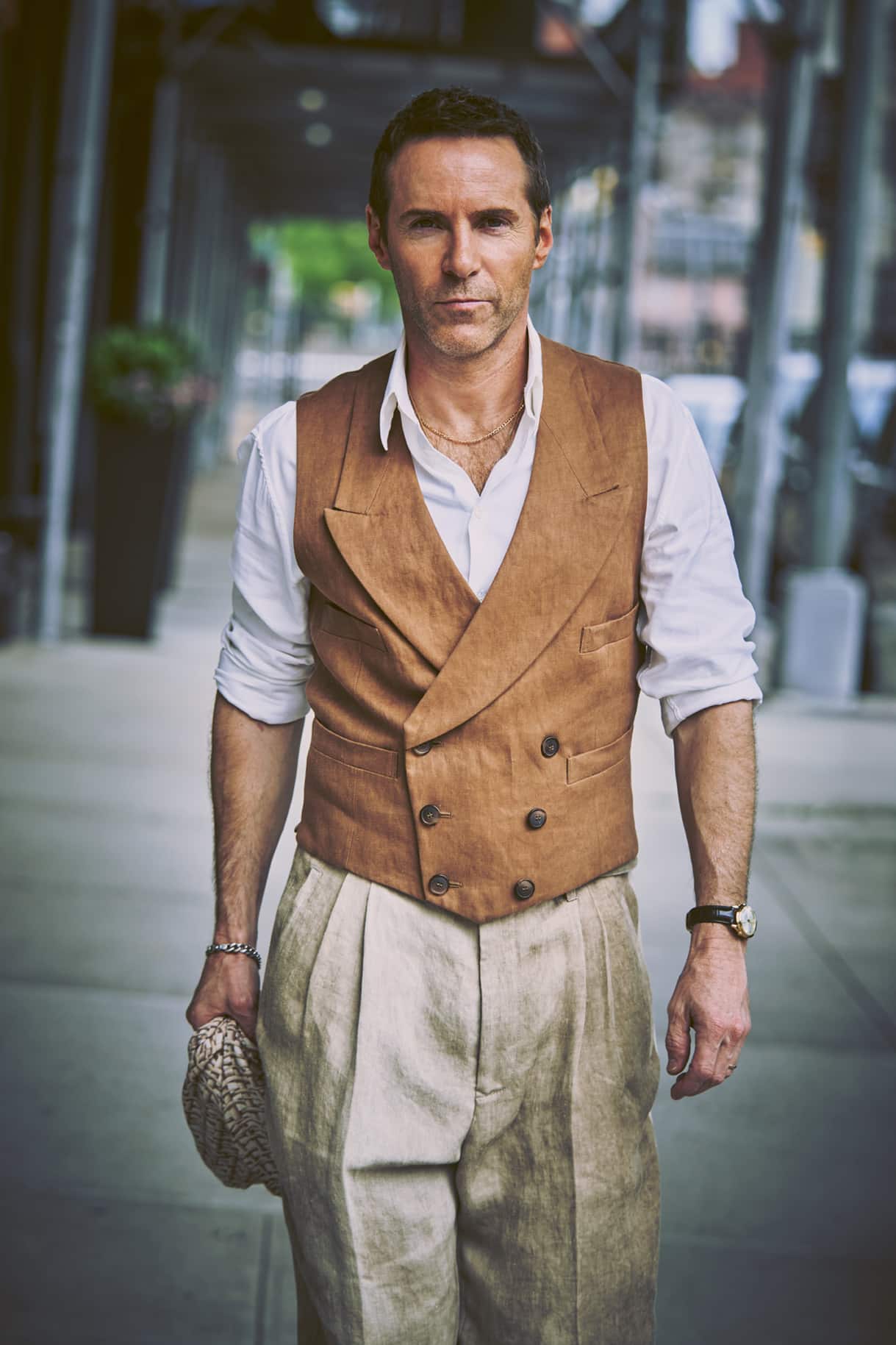
What is your favorite item of clothing in your wardrobe?
I have this woolen knit tie that belonged to my grandfather who was a Sardinian sculptor, and I think it was crocheted by my grandmother, if I’m not mistaken. But it’s so cool, it’s black and white stripes. And he wore it in the 1960s. He just looked so cool in it, and I don’t look as cool, but it’s still really cool. I only wear it on special occasions.
I wonder if I have the photo of him in it. I used to have one. Yeah, I think it might be downstairs or maybe it’s on my phone. He was simply the coolest. My paternal grandfather was a very stylish guy, but in an effortless and laid back way. [Finds photograph]. So these pictures of him are amazing! I mean, this was him … in his Velvet Sardinian suit. I knew him very well. He didn’t die until I was 25. There he is, look at him with the local boys in Sardinia.
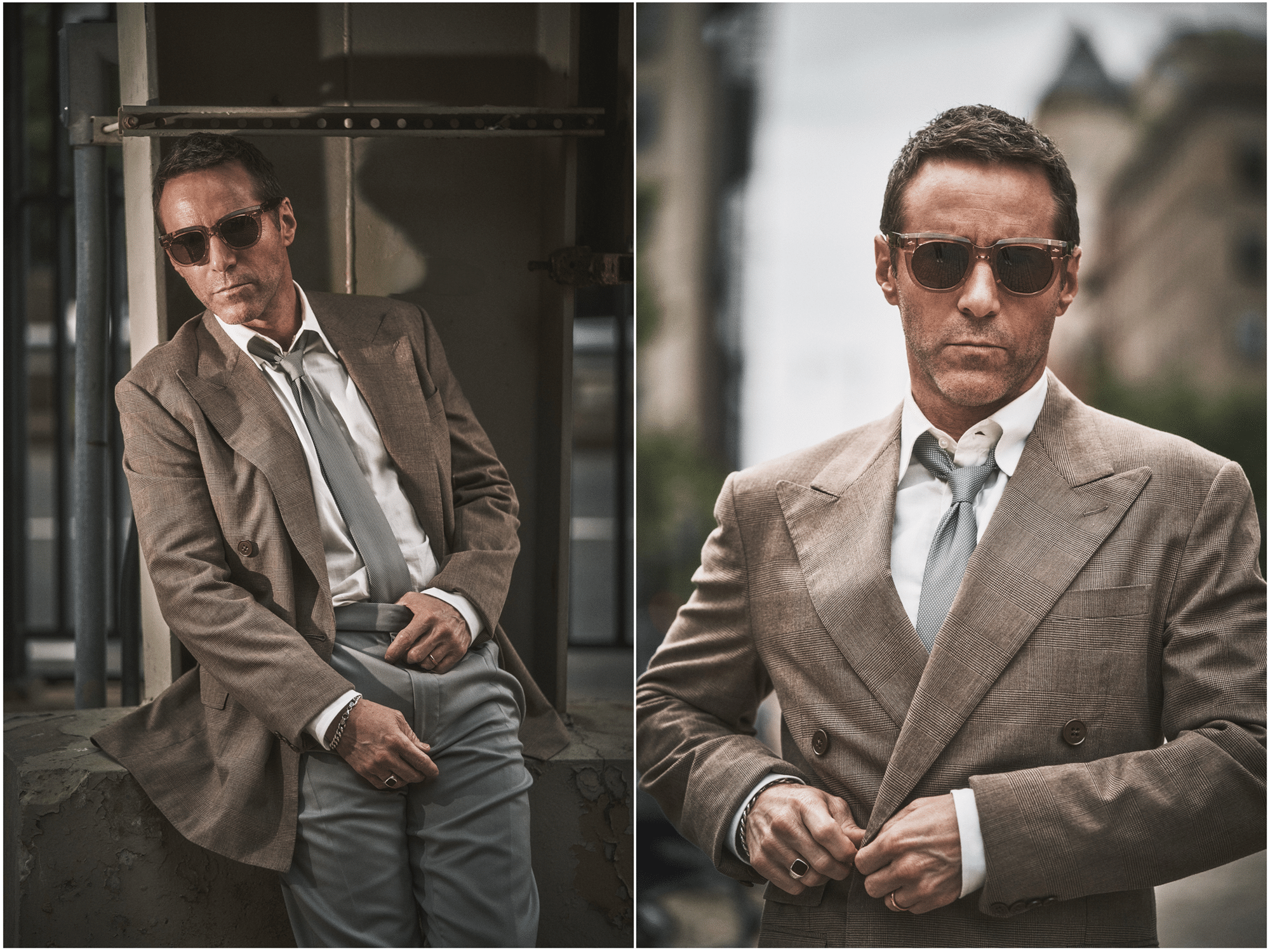
What music did you love aged 13, and do you still love it now?
So age 13, let’s see, I would’ve been in seventh grade. Well at that time, I was really into Ricky Nelson, who was one of my dad’s favorite singers from his childhood, and I just got really into him. And in fact, my dad took me to see him play in Burlington, Vermont, at this tiny little club for about 50 people. And it ended up being, if not his final concert, one of his last two concerts before he died in a plane crash. But I was totally into him, and I just love him still. In fact, when Em and I got married at our wedding the dance song was a Ricky Nelson song called Old Enough to Love.
And then I was reading Bob Dylan’s Chronicles book, and in it he says that Ricky Nelson was his favorite singer. And Bob is, of course, another hero of mine, no question. I can’t speak to exactly how he’s lived his life or if he’s happy or not or anything like that, but I mean, I think he’s one of the most brilliant poets and singers. Even his voice, I love his voice. But anyway, 13, Ricky Nelson.
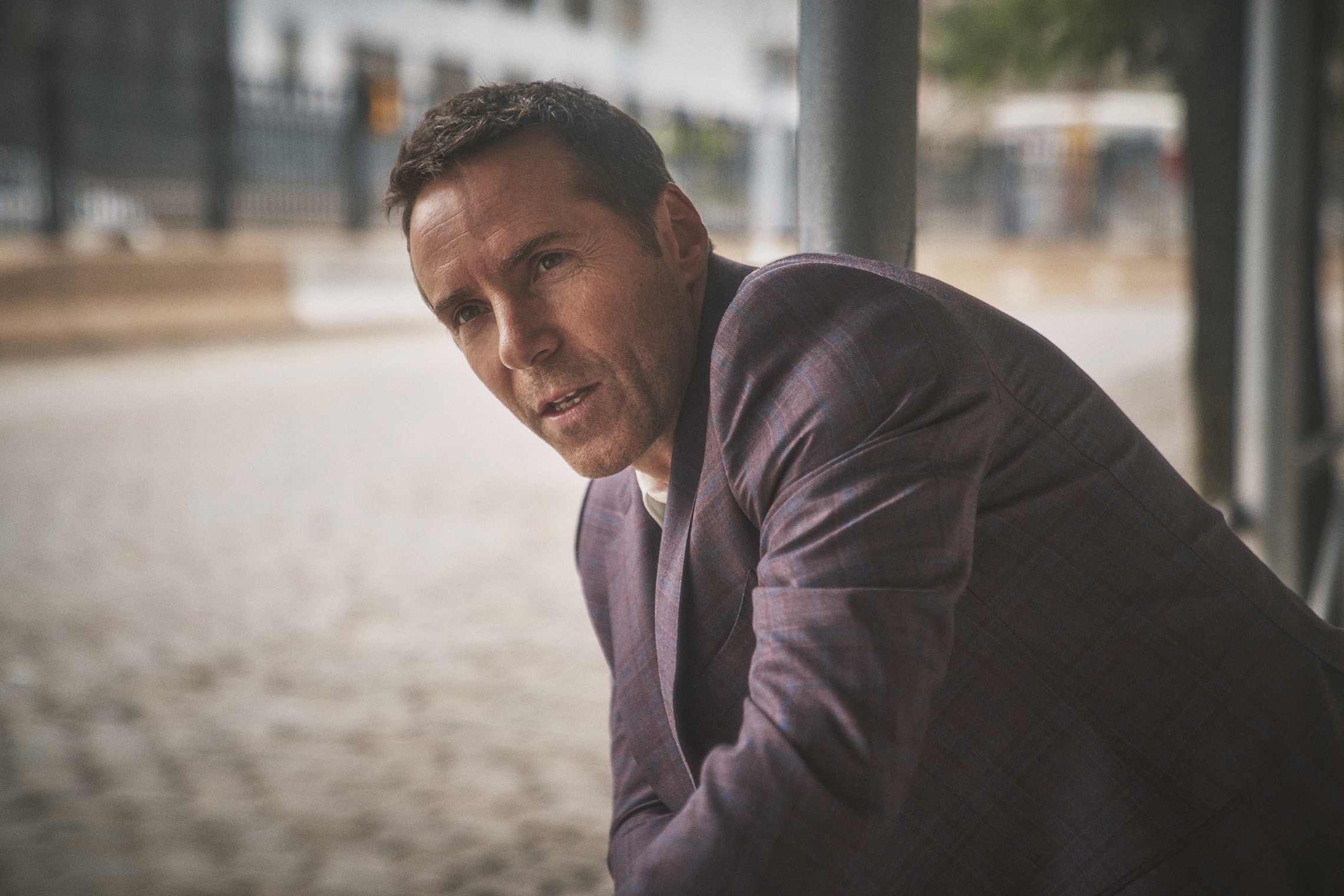
I was also really into the Everly Brothers. And I mean, I was into a lot of that ’50s stuff, at that time, and I still am. And then I think shortly after that, I got very into Merle Haggard. All my dad’s music, he and my grandfather were big country music lovers, 1960s country music lovers. My grandfather used to say, “I love this country music. It’s so desperate.” So Tammy Wynette, Merle Haggard, Loretta, Willie, Patsy [Kline], Crystal Gayle, all those… but out of all of them, Merle was the guy for me.
Plus I played a Merle song on guitar for my dad’s funeral [in 2017], called Silver Wings, which is one of his all time greats.
I was very close with my grandfather, and we used to spend all summer out there at their house in Long Island where they lived. I had three months every year there and then Christmas there. We were all very affectionate on my dad’s side of the family.
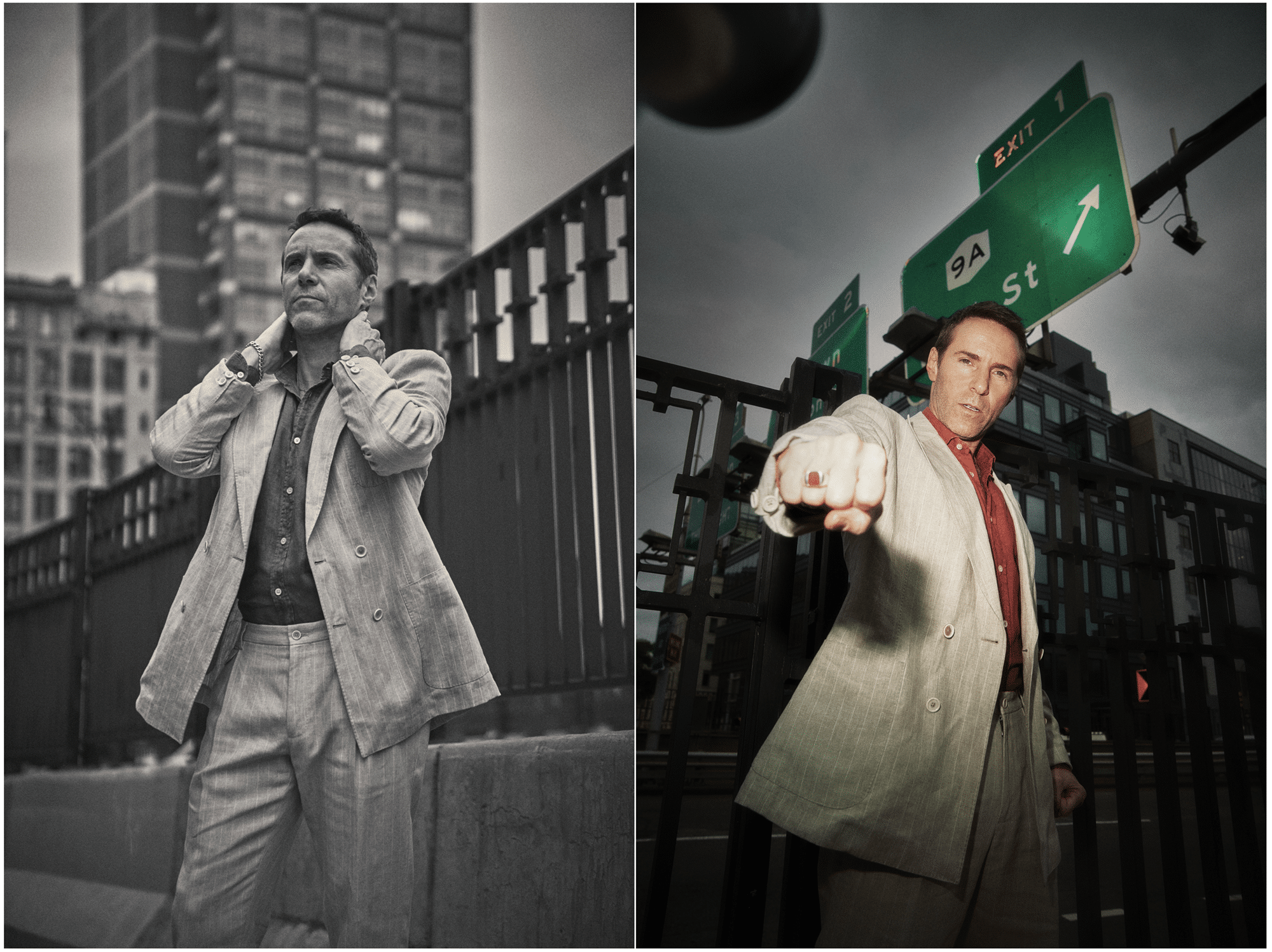
What’s the most inspiring book you’ve ever read?
For Whom the Bell Tolls, Ernest Hemingway.
What is a movie that left a lasting impression on you?
Raging Bull, Martin Scorcese.
What is your favorite word or saying?
I’m a big Robert Crumb fan, who was a psychedelic cartoon artist in the ’60s. And I mean, he continues to work today and he’s now considered a seminal artist, really, but it’s definitely based in social commentary subversive, counterculture cartoonistry.
And he had this character named Mr. Natural. Mr. Natural, was this weird guy, I’m going to show you pictures of him, who had a long beard. That’s Mr. Natural. Can you see? [shows photograph] And he’s always saying, “Don’t mean shit.” Everywhere he goes, he says, “Don’t mean shit.”
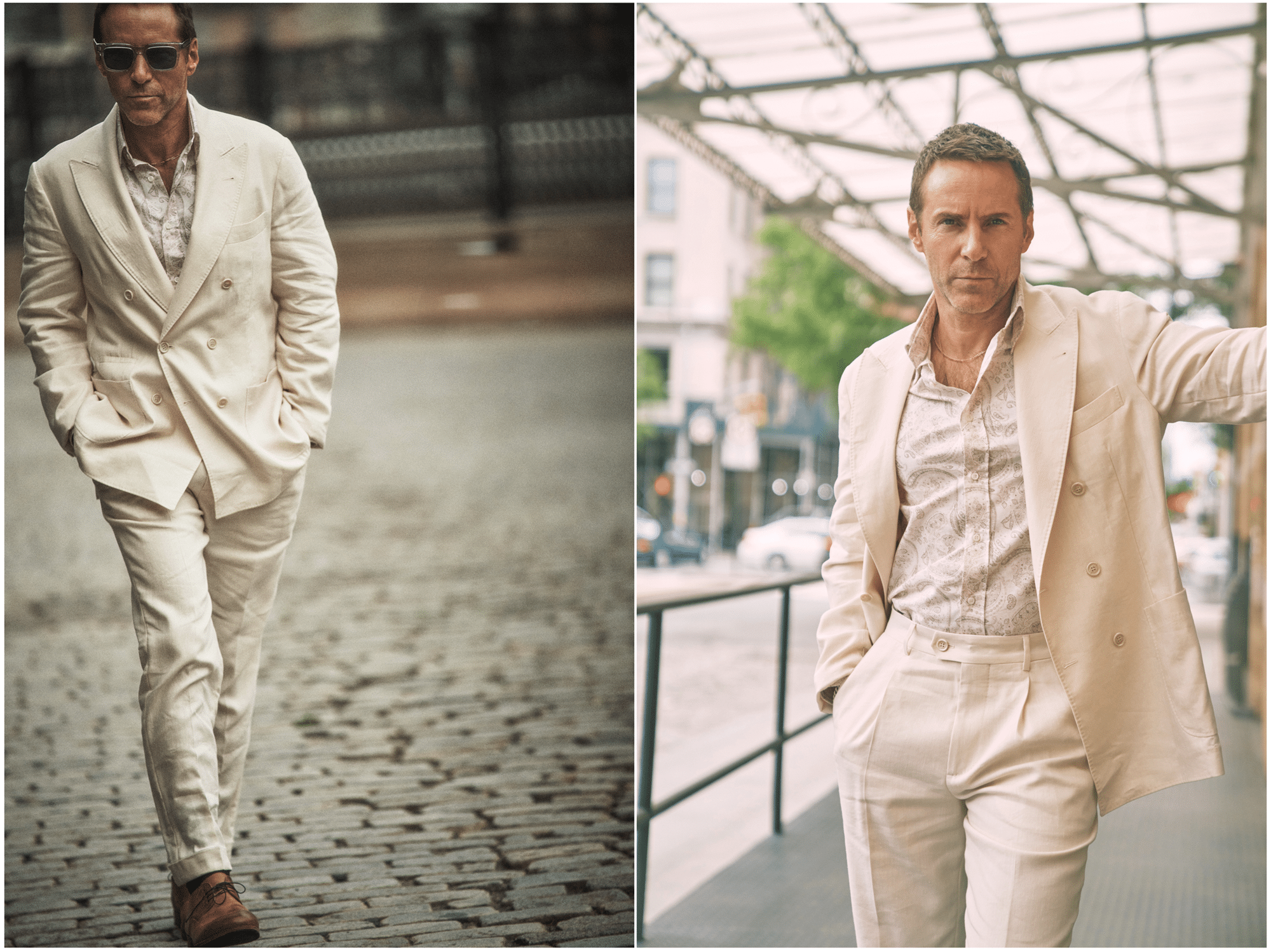
What do you want people to say about you at your funeral?
Oh, God. I guess, “He kept on trying.”
And finally, a quickfire five favorites…
Car?
It used to be one of those 1969 Porsche 911s, but I guess I’ve discovered that that’s everybody’s favorite car, I thought I was so unique!
Let’s see, I had a 1972 Alfa Romeo Spider when I lived in LA, and that was mine and Em’s only car that we shared between us. There was literally no air conditioning, convertible, we’d be going to these job meetings and we’d arrive just f***ing dripping, drenched in sweat in the middle of the summer heat. And the f***ing fumes from the engine just blasting you in the face as you’re driving down the 405, and we just were determined to keep driving this little f***ing thing. It was about that high off the road, so you’d constantly be slamming the bottom, but it just looked so f***ing cool. It was British racing green with a wooden steering wheel. So it’s my favorite car because it has such sentimental value.
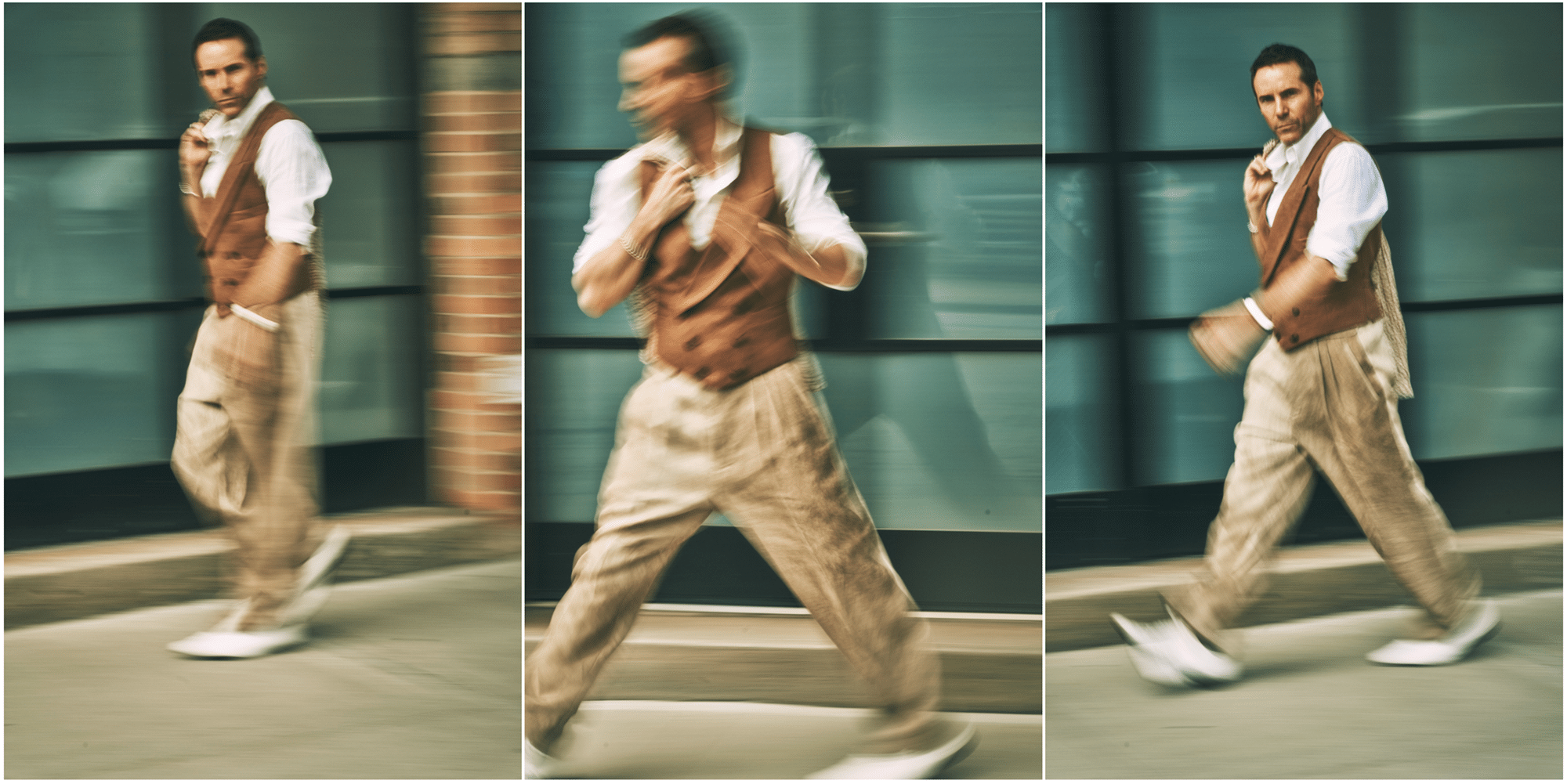
Sports team?
In terms of supporting a sport, I’m much more of obsessed with particular tennis players, than a team. But if I had to say a team, I guess I’d say Cagliari soccer team, which is the Sardinian team. Cagliari is the capital of Sardinia.
But I’ve been a Rafa Nadal lover for most of my life, and I’ve seen him win some of the biggest tournaments of his career. And he’s just too good.
Meal?
Well, it always used to be pasta, just a bowl of tortellini al pesto, but I’ve had to cut down on all that. Now that I’m getting older, I can’t eat that shit anymore. So now I guess I’ve gotten really into grilled artichokes, they do it in Rome in this certain way, and I dig in.
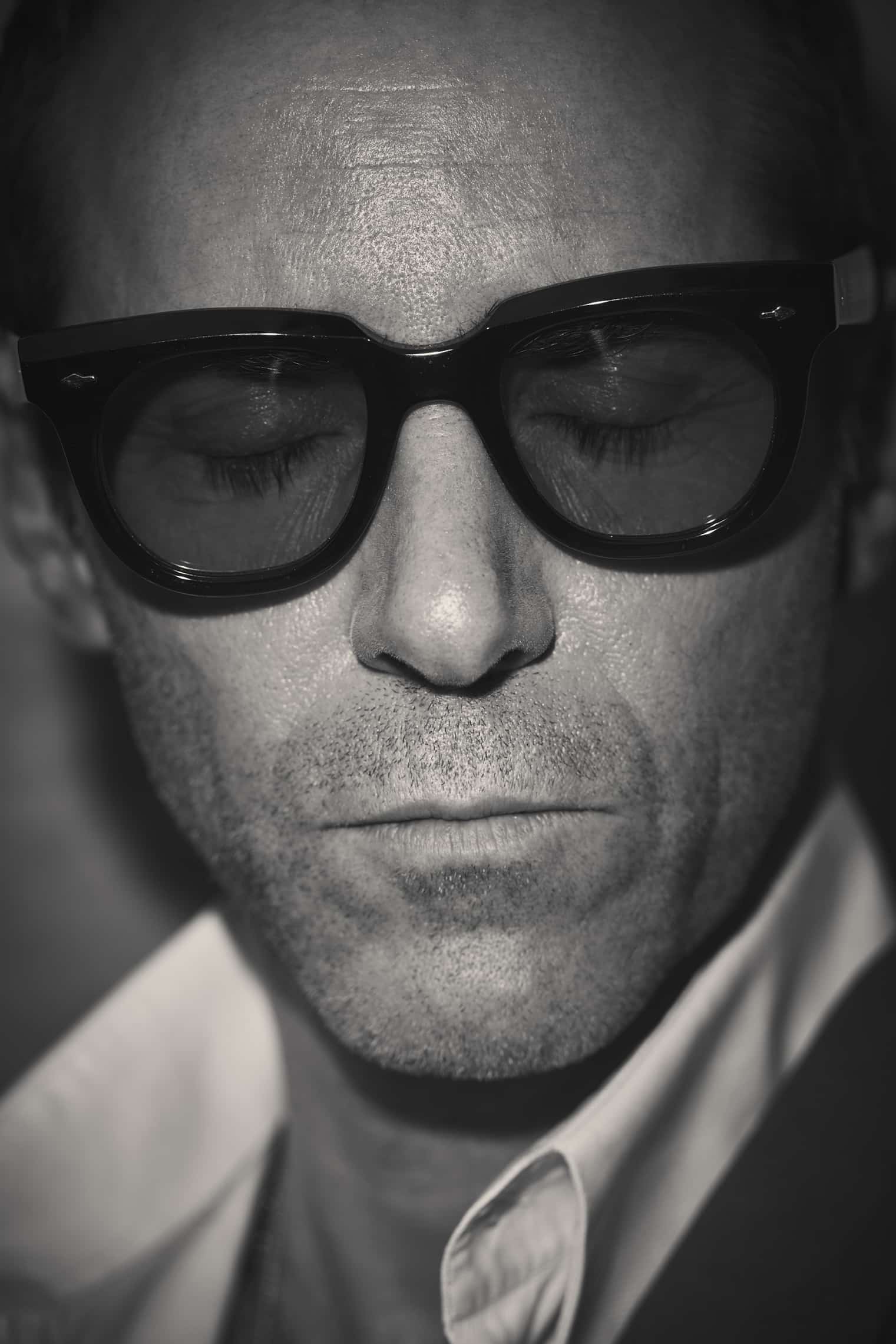
Grooming product?
Hang on, it’s in here, let me get it. This is the only thing I use in my hair, I get it from CVS. It’s called, Fix Your Lid Styling Fiber!
Clothing label?
I’m sentimental towards Giorgio Armani because when I was 24, they brought me out to Milan for their Men’s Fashion Week and they put me up in the The Principe di Savoia Hotel. They gave me a car and driver for a week to just take me up around Lake Como, and they gave me 10 suits. Me and Arnold Schwarzenegger were the guests for that particular show.
It was my first taste of real glamour as a movie actor. And I’ve kept in touch with Wanda McDaniel [EVP Ent Comms] ever since. So I have a real place in my heart for them. And in fact, in the shoot that I did with you guys, I wore Armani. And so I sent [snaps] to her. I have a film at the Venice Film Festival this year, and so she’s told me that they’re going to dress me for it.
STYLING BY ALFONSO FERNANDO NAVAS
GROOMING BY RHEANNE WHITE at TRACEY MATTINGLY AGENCY
MANY THANKS TO STEPHEN SEO
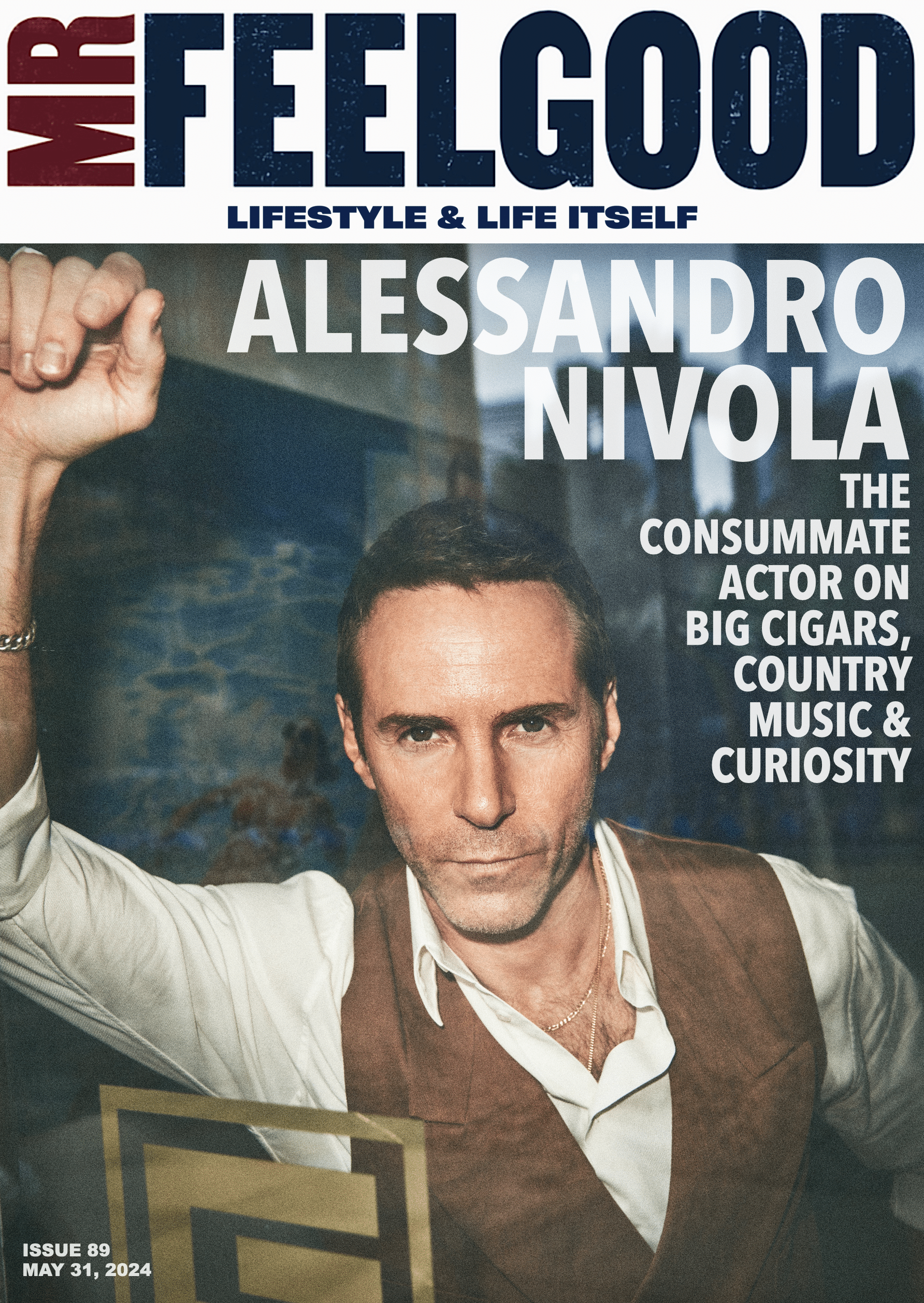


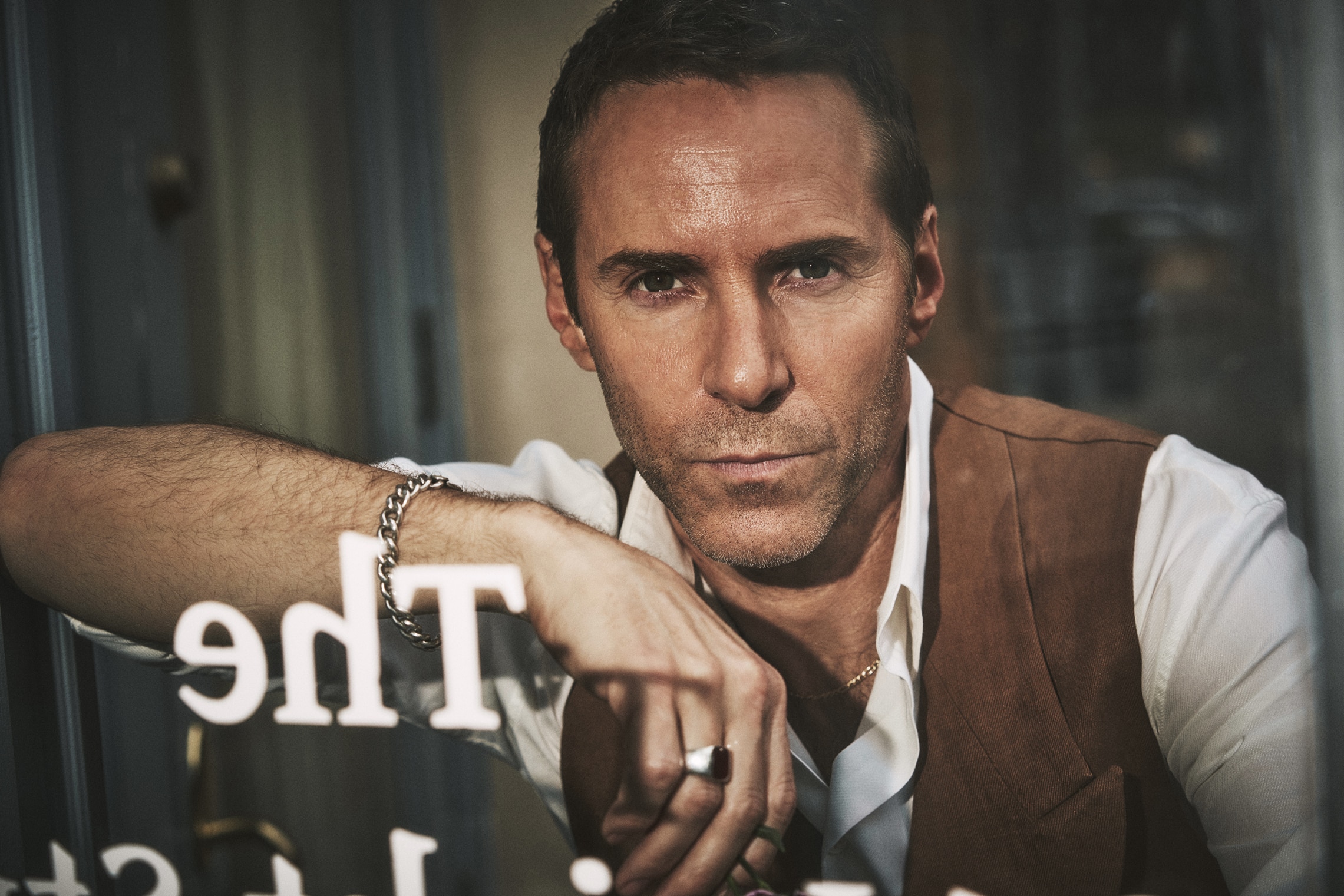

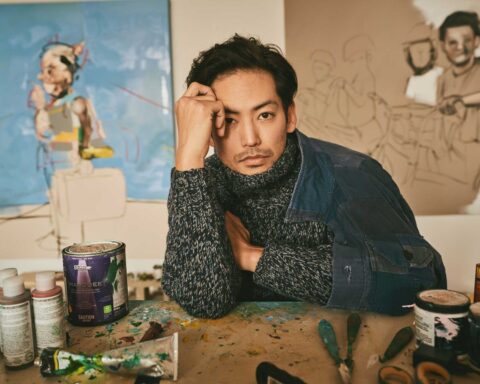
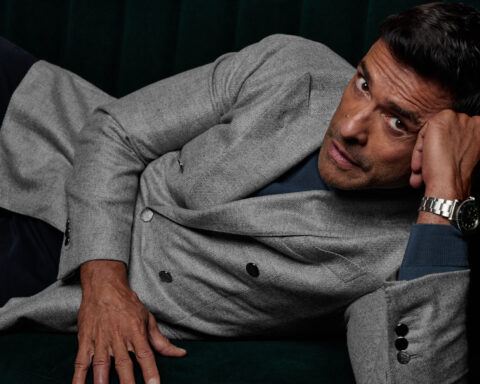



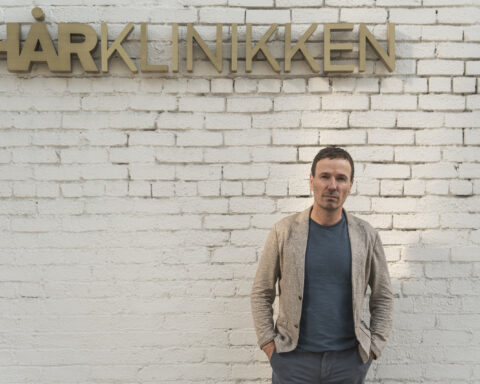

Was searching after seeing again the french movie about coco chanel (2009). Sounds like a Great man and nice itw! Thank you
Mr Feelgood has to be the greatest website ever! I’ve spent the day reading Who the f*** are you? when I should be working.
Doesn’t matter who the interviewee is you can take something from every single one.
I particularly liked the Brunello Cucinelli 20 questions, but they are all excellent. It’s good to hear/read how us men travel through life, ups an down, success and disappointments but finding a way to get through.